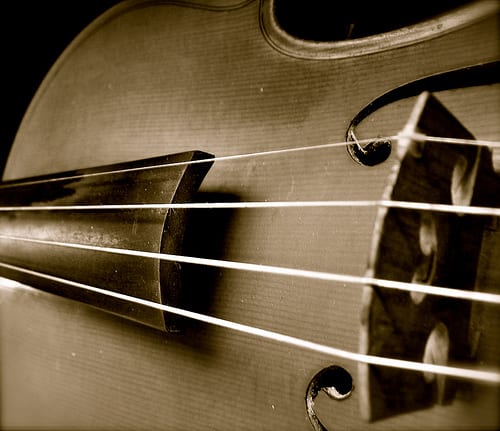 Learning an instrument can be an incredibly rewarding experience, both in your lessons and out. Over time, the power of music inevitably touches every part of your life, and even allows you to look at things from a new perspective. Below, read how playing the violin has affected Sarah H., one of our newest teachers in Marietta, GA:
Learning an instrument can be an incredibly rewarding experience, both in your lessons and out. Over time, the power of music inevitably touches every part of your life, and even allows you to look at things from a new perspective. Below, read how playing the violin has affected Sarah H., one of our newest teachers in Marietta, GA:
Standing here in a practice room, holding my violin and staring at the overwhelming amount of music I am learning, I think to myself, “I have been practicing for three hours now, and I still cannot play the music well enough.”
I sit down and wonder why I put myself through such a difficult profession, and think, “I should have been a history major.” But after I am finished with my pity party, I realize that without my violin, a part of me would be lost. A love I have had since the age of five cannot be thrown away because it is “too difficult.”
And then I have an epiphany. Playing music is not about playing the notes perfectly in tune, or in perfect rhythm. Music shouldn’t have to be about being flawless. Music is bigger than that. Music is about teaching important life lessons, such as commitment and a method of finding peace.
Learning an instrument requires a dedication to practicing, which can mean a ridiculous number of hours. This is obvious really, and seemingly straightforward. But I remember as a seven year old, trying to practice was similar to going to the dentist. I typically cried. Now how did I get to a point where I can practice five hours a day? First, it took twelve years of maturity, and a college program similar to that of a conservatory. But ultimately it was due to my commitment to my violin. Quitting was never really an option, even when I was suffering through my scales as a seven year old.
Acquiring this commitment comes naturally as you learn the violin. Eventually, through many ups and downs, you’ll learn to want to practice. This commitment also rubs off on other aspects of your life, such as in school and at work. Long hours in a practice room teaches you a lot about patience, also. Difficult assignments in school or at work might not seem so tough in the long-run because you are used to working hard.
A love for playing your instrument can also impact how you view music in general. Many times I hear people say, “I don’t like this song, there are no words!” or “This is boring, why is it sixteen minutes long?!” These remarks make me sad. As a musician you learn how to appreciate all music, from jazz to classical to metal to country. You’ll get to a point where you really listen to the music. Music then becomes a deeper, more beautiful, almost spiritual occurrence.
With the violin, you can experience this peace and beauty when you play, and when you listen to other violinists. This peace also rubs off on other aspects of living, like a general love you will never forget, even if you don’t play the violin forever. You will find many ways to find enjoyment in any environment, one that many people won’t experience.
Now as I continue playing the violin, I am not so worried about being perfect. I can play my violin and simply enjoy the gifts it has given me over thirteen years of playing. In the words of Lisa Gerrard, a singer from Australia, “My voice is far from perfect but that is not my greatest concern; my greatest concern is that it furthers the music into a tangible emotional and soulful space that projects love.”
Want even more expert advice from our teachers? Sign up for email updates here!
 Sarah H. teaches violin to students of all ages in Marietta, GA. Sarah joined the TakeLessons team in June 2012, with several years of teaching and performing as a classically trained violinist. Sign up for lessons with Sarah, or visit TakeLessons to find an instructor near you!
Sarah H. teaches violin to students of all ages in Marietta, GA. Sarah joined the TakeLessons team in June 2012, with several years of teaching and performing as a classically trained violinist. Sign up for lessons with Sarah, or visit TakeLessons to find an instructor near you!
Photo by L. Bernhardt
Suzy S.
